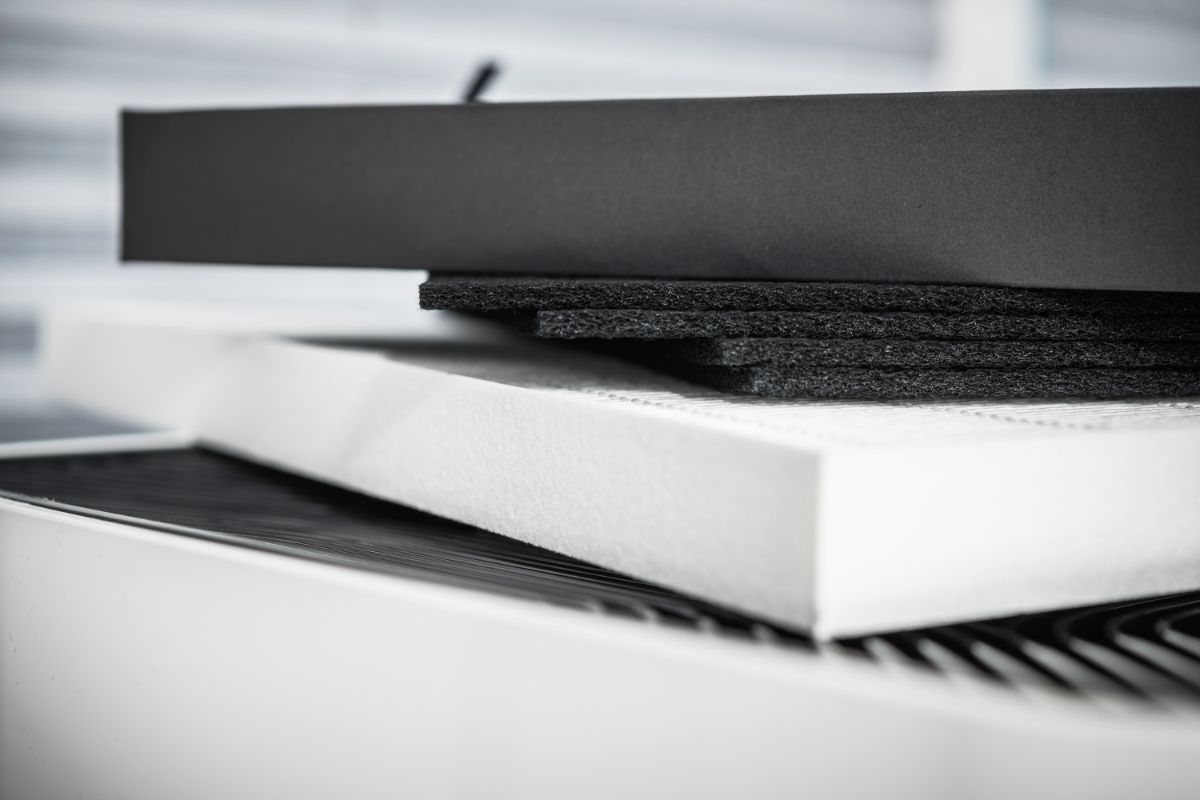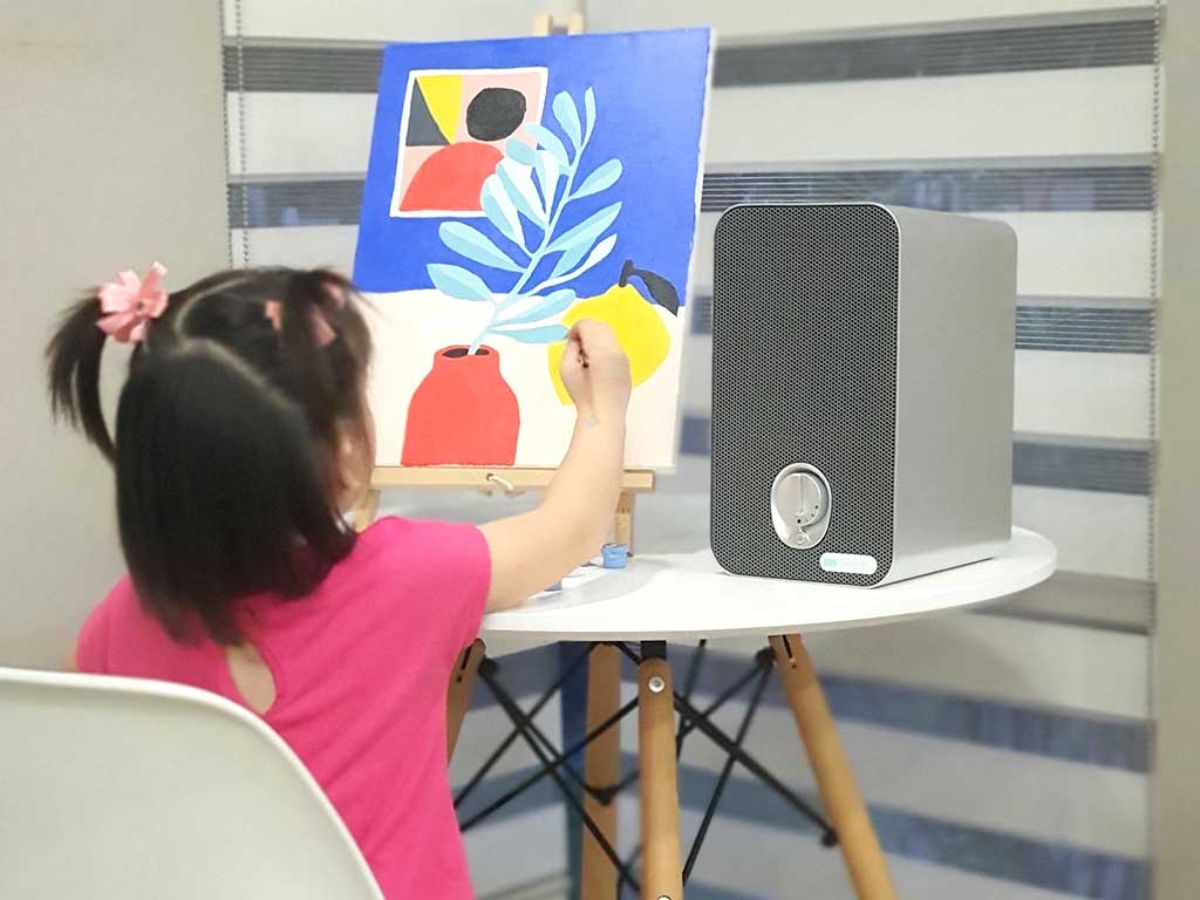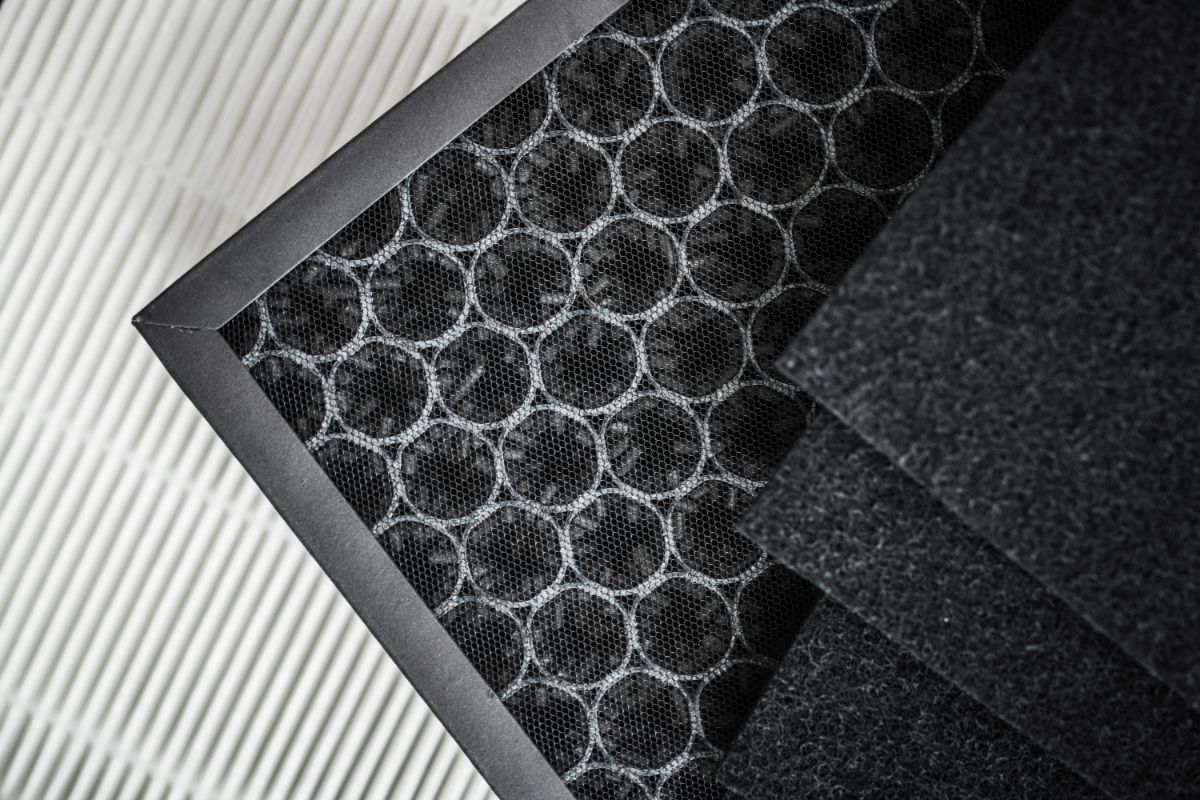What is a HEPA filter?
- HEPA stands for “high-efficiency particulate air”
- Traps 99.97% of particles that are 0.3 microns
- Made from interlaced glass fibers
- Works with other filtration technologies
- Used in medical-grade devices
While going over all the possible air purifier devices online for your home or office, you probably have come across the term “HEPA filter.” It’s a key component in the filtration and sanitation process of these machines, and the main reason why so many air purifiers have been installed in schools, offices, malls, and hospitals in recent years.
But what is a HEPA filter? Chances are that you’ve tried to look it up yourself — and the answers you got were confusing. If so, keep reading. In this article, we break down what this technology is, and how it works to improve the quality of life for those who use them.
HEPA stands for “high-efficiency particulate air”

The first thing you need to know is that “HEPA” stands for “high-efficiency particulate air” (filter). When you see the term “HEPA” on an air purifier device, then it’s a sign that you’re buying into technology that has been tested and approved against a strict standard — which we will get into later.
But why is this term so important? A HEPA filter is an important piece of technology because it ensures the quality and reliability of the filter — and the device it’s attached to — to remove even the tiniest particles from indoor air.
This filtration function is a more important feature than many of us realize. Because they are invisible to the naked eye, you can’t see just how many irritants and pollutants are trapped indoors with us — and can cause discomfort or sickness when you breathe them in.
An air purifier with a HEPA filter can ensure these particles are removed efficiently, and vastly improve the quality of the air you breathe indoors.
Traps 99.97% of particles that are 0.3 microns
But aren’t there all sorts of air filters on the market? What sets a HEPA filter apart?
What makes a HEPA filter better than any other kind is its ability to capture almost every kind of airborne particle. HEPA is, in fact, used to describe filters that can trap at least 99.97% of particles that are 0.3 microns. Bear in mind that there are 10,000 microns in 1 centimeter — so this is incredibly small!
This means that HEPA filters are efficient at capturing things like allergens, pollen, dust, and even tiny viruses and bacteria that are floating about in the air.
One thing you might be thinking is “why 99.97%? Aren’t their filters that can catch 100%?” While this might seem like a more effective option, this is not the case. A filter that says it can trap 100% of particles can’t guarantee that this includes ultra-fine ones, like pathogens. This is why sticking to a HEPA filter with a guaranteed success rate for particles that are 0.3 microns is the most reliable way of cleaning your indoor air.
Made from interlaced glass fibers
So how are HEPA filters so efficient at trapping and removing tiny particles from your air? The mechanism for this technology is simpler than you think. An air purifier sucks in air, which is then passed through a series of filters (including the HEPA filter), and then releases clean air into the room.
As the air passes through the HEPA filter, it is met with layers and layers of pleated, interlaced glass fibers. This is a thick, dense, and random arrangement of fibers — much like a maze — which serves to take out particles from circulation in the following ways:
- Direct impaction — Large particles get trapped as they travel straight into the first layer of fibers and stick to it.
- Sieving — The air stream carries smaller particles between fibers, and particles get stuck in between gaps.
- Interception — The air stream can reroute around the fibers, but provide inertia that pushes particles straight forward. This makes them stick to the sides of the fibers while the air flows through.
- Diffusion — Ultrafine particles move erratically in the air stream, and are likely to bump into and get stuck to fibers at random.
Works with other filtration technologies
Now you might be wondering what happens to the remaining particles that don’t get stuck on the HEPA filter. Don’t worry, they don’t go straight into your lungs after circulating through your air purifier.
This is because HEPA filters rarely work alone in air purifiers — especially those designed by companies like UV Care. Instead, they work in concert with other devices that are specially designed to catch other particles, chemicals, and even odors that our HEPA filters might not catch.
At UV Care, our devices contain varying combinations of the following filters:
- Fine Nylon Mesh Pre-filter — Effectively traps large particles like dust and hair.
- Antibacterial Nano Silver Ion Filter — Releases silver ions that bind and destroy the DNA of bacteria, fungi, and viruses.
- Activated Carbon Filter — Designed to attract and trap volatile organic compounds (VOCs) and other gaseous pollutants from the air.
- Photocatalyst Filter — Renders VOCs and similar compounds into harmless gasses.
- UV Care Virux® Filter — Our patented electrostatic filter and antimicrobial filter instantly kills germs, bacteria, and viruses.
While HEPA filters are very effective, these other filters provide an extra safety net to ensure your air is safe and clean to breathe in.
Used in medical-grade devices

HEPA filters are so effective and powerful that they are the filter of choice when it comes to medical air purification devices — you’ll likely see them in every hospital and clinic you go to.
But, that doesn’t mean that this technology doesn’t have a place in your home — HEPA filters can be found in compact devices, such as our Desk Air Purifier, which is perfect for your office. Other options, like our 8-Stage Air Purifier with Humidifier, are great for larger rooms, like your kitchen and living room.
Key Takeaway
Now you know what a HEPA filter is, you’ll be able to pick out the air purifier that’s suited to you and your family’s needs. If you need some help picking out a high-quality and reliable air purifier for your home, message UV Care today! As the leading supplier of UV-C germicidal technology and air purification devices, our team can help you find the device you need to protect your home and family.

